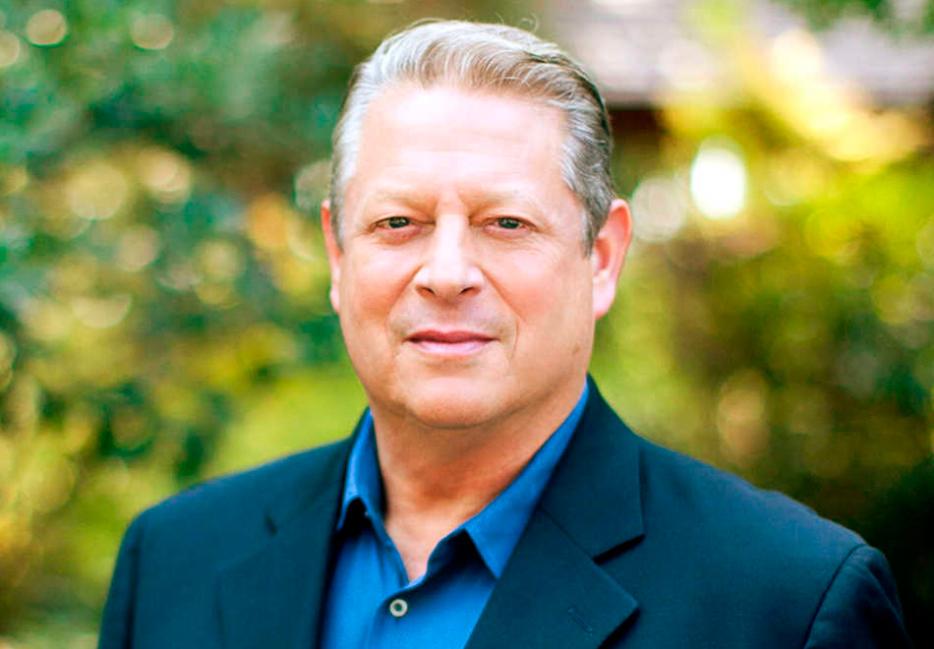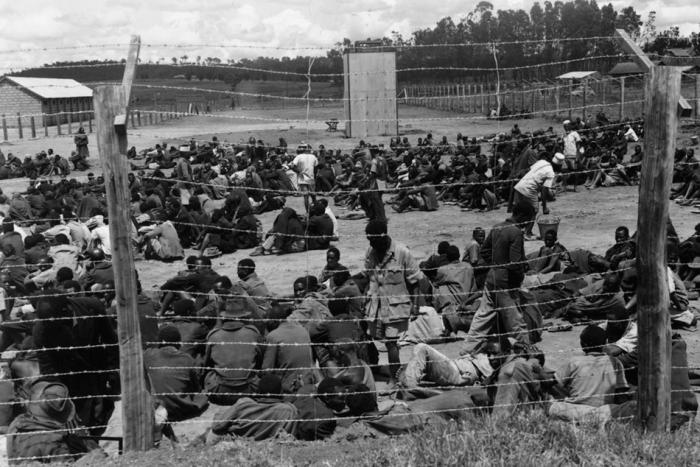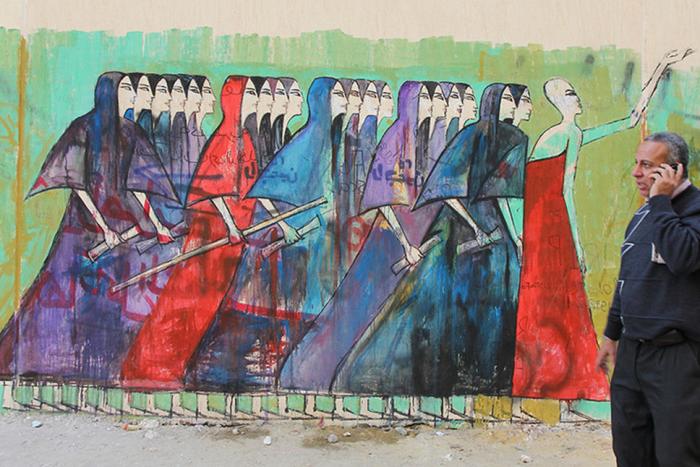“I appreciate the interview,” says Al Gore, as we wrap up, which is an odd thing to say for someone who’s a director of Apple Inc., a special advisor to Google, who just sold a TV network to Al Jazeera in a $500 million deal, who won an Oscar and a Nobel and possibly the presidency of the United States, give or take the way things actually turned out. He’s just spent the day speaking with select Canadian media outlets, who are giving him front-page treatment as he trashes our environmental record. Still, here he is, stately and sonorous, all Southern courtliness amidst a swirl of aides, thanking interviewers for showing up.
The calcified wisdom that says Gore wasn’t “a good enough politician,” was too wonky, too earnest to beat George W. Bush is unfortunate: If you come within a whisker of the presidency, able to sweep up adherents and make interlocutors feel like they’re the only ones in the room, enough to mount a national campaign, you’re one of the best. And after all these years, Al Gore is still campaigning. But for what?
At the moment, he’s promoting his latest book, an epic tome called The Future. More than another warning about the climate crisis, it’s an encyclopedic rundown of the changes that the former Vice President sees coming down the pipe for the planet. Gore says it started eight years ago with a question asked by a student at an overseas speaking engagement: What are the drivers of global change?
“I gave what I thought as a pretty good answer,” he says. “Yet the next morning when I got on the plane, the question kept nagging at me. So I started an outline that became something of an obsession.”
The Future turned out to be a disconcerting overview of a planet full of creatures who aren’t very good at seeing the big picture: A global economy in which so many jobs lost to high-productivity robots and computer networks that we could lose demand for the goods these robots are making; a morally ambivalent Internet that sparks revolutions and crushes dissidents; a world population that’s growing so fast, rich countries are buying up hundreds of thousands of acres in Africa as insurance should their own farmlands quit; a climate crisis that threatens topsoil and water tables and crops and cities; and amidst this all, the decline of American democracy and global leadership, just when Gore argues the world needs it the most.
But despite the fact that his book isn’t hesitant to label America’s decisions in the early 21st century as “catastrophic,” it’s not George W. Bush’s legacy that Gore seems most concerned with, but the nexus of corporate money and television that’s become the sole focus of American democracy. “The United States no longer has a well-functioning government,” he writes, which is quite a declarative coming from a former Vice President.
“Yeah,” he says, when I ask about it, sounding almost surprised himself. “But the evidence makes it very clear that that’s simply an objective analysis.”
Gore has percentages. Like the 90 percent of Americans who supported the most basic gun-ownership reforms that Congress wouldn’t pass. Or the fact that, today, 40 percent of US congressmen and 50 percent of senators go on to be lobbyists, turning the networks they developed into pathways for pushing paid influence back into the system.
I ask how things have changed since he was elected to congress in 1976, at age 28. Here’s the thing, he says: Today, newly elected representatives are sat down at orientation sessions, and told that they need to be working towards fundraising goal for the next election day—and that the countdown starts now.
“They say, you have to raise $15,000 to $20,000 every day over the next two years or the next six years—in some states less, in some states, considerably more,” says Gore. “So they spend now roughly, on average, five hours a day on the phone, or at cocktail parties, or at fundraisers begging rich people and special interests for money. When I was elected in 1976, there was none of that. There was fundraising of course, but I spent probably, oh gosh, less than 1 percent of my time on it. Really and truly.”
Which leads Gore to his second target: Television. By his measure, a full 80 percent of all those fundraising dollars go to paying for 30-second advertising spots. Moreover, it’s an inherently undemocratic medium, walled off by gatekeepers who’d charge thousands or millions of dollars for access, unlike both the penny press of yesteryear and the WordPress of today. Gore harbours a curmudgeon’s dislike of television as a medium (“You’ve seen kids—their eyes go blank and they’re immobilized…”) despite the fact that he was until recently in the business himself. And while he’s quick to acknowledge that the internet has proved to a force of dubiously revolutionary power—either at home or in the Arab Spring uprisings—he has high hopes that, in time, it will break television’s hegemony over the American consciousness.
The dispassionate wonkishness of his book plays down the fact that its author wasn’t a bystander to the changes he’s describing. As a congressman and then a senator, he saw the potential of computer networks long before his colleagues did. (For some background on congressional computer literacy, here is a video of Newt Gingrich trying to figure out what to call a smartphone. It was recorded last week.) Bills that Gore championed helped grow, if not exactly invent, key parts of the Internet we know today. Along the way he became intensely interested in environmental issues, writing his first book on the subject, Earth in the Balance, back in 1992.
This, of course, is how he reinvented himself after his electoral loss in 2000, as an activist and filmmaker, an up-market Michael Moore. And despite the fact that only a sixth of his latest book deals directly with the climate change, and despite his eagerness to both write and talk about everything from GDP (a terrible way of measuring growth because it doesn’t account for externalities like natural resource depletion) to self-driving cars (“the sooner the better”) to the Singularity (he’ll pass), everything about Gore changes when the subject turns to the environment.
The Future is long on background and briefing, but remarkably restrained where it comes to solutions. Throughout, Gore is adamant that technology offers no silver bullets. His solutions are more mundane: If a genie, being a practical kind of genie, gave him three laws to pass, he’d first implement a carbon tax and give the money back to Americans. Second, he’d subsidize renewables. Third, he’d abolish private donations to federal campaigns and institute public campaign funding instead; unfettered donations being the reason we have to use genies to pass bills in the first place.
Where he sat thoughtfully over the microphone, he now turns in his chair and squares his shoulders; his voice, never reticent to begin with, rises. For all the economics and the quirks of history, for all the abstract and abstruse wonkery that comes with the words “Al Gore,” this is the part where Al Gore gets beyond policy. For him, this is morality.
“The reason I’m optimistic is that I’ve seen in the past where difficult issues don’t get any attention until there’s a shift in consciousness, and the issue is redefined in its simplest terms as a choice between right and wrong.”
Climate-change denialism, for Gore, is a natural corporate reaction to the message he’s been preaching. But this isn’t a scientific debate for him anymore; it’s a social struggle. He lists off the antecedents: This is like civil rights, like apartheid; like the Berlin Wall; like gay marriage. In Al Gore’s future, the stakes are too high for it not to be.
He leans in: “We owe our children, ourselves, and most of all future generations a duty of care”—and here he leans on the words “duty of care,” as if hearing the call of duty of care—“to stop the reckless polluting of the atmosphere that’s destroying the climate balance that supports the water cycle, that gives the rain to the farms, that produces our food and gives us replenished supplies of fresh water…”
I ask him what he’d like his legacy to be.
“My legacy?” he says.
“Your legacy.”
“You know, nobody’s ever asked me that before.”
This seems like a stretch, but the man does look genuinely surprised.
“I guess I would say, something on the order of, he did the very best job he was capable of doing in catalyzing the emergence of a meaningful and successful response to global warming.”
Al Gore’s campaign will always be in earnest.





